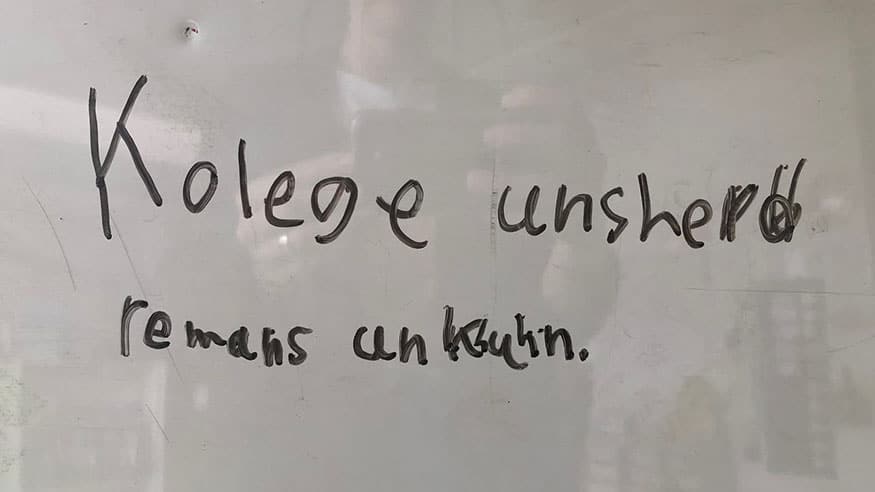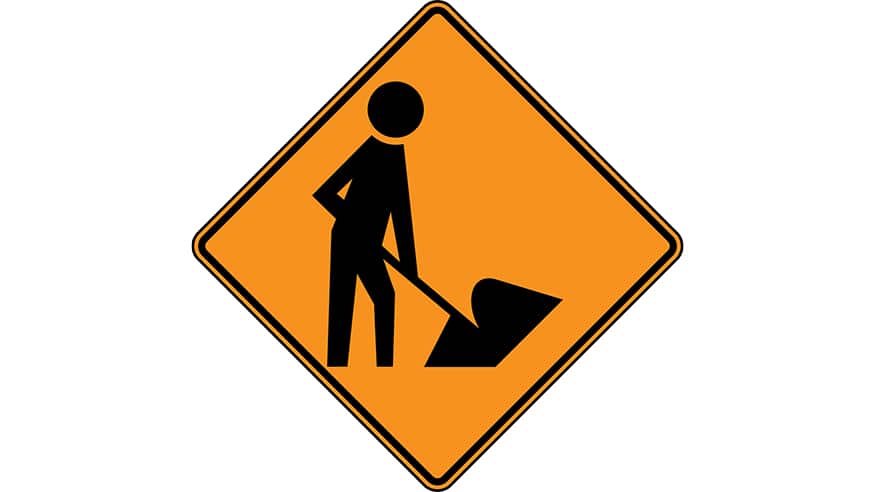Xavi, a Grade 1 student raised his hand in a class discussion centered around sharing our knowledge and ideas and said, “Mrs. Hertz, it’s like the quote – Knowledge unshared remains knowledge unknown.”
I melted at first, and once I regained my composure, I asked if he would please write it on the board for us to remember. The above picture is from what he wrote.
I praised him greatly for his connection, idea, and for using his knowledge of phonics and graphemes at this point as a learner to write his ideas for others to grow from. What would have happened if I corrected him for spelling every word incorrectly?
Our written expression is a form of communication. We see the importance for students to have the ability, skills, and understanding to express their ideas at their developmental level with the freedom from spelling anxiety.
What is Word Work?
Word Work is the inquiry into a deep understanding of phonological awareness, graphemes, patterns, and meanings of the English language that support your child’s written expression of their ideas, wonderings, and understandings. Word work is what we might know as spelling, phonics, and vocabulary from when we went to school.
Here at the FIS, we call it Word Work. It is a daily practice for our learners as they develop the fundamental skills and knowledge to best express themselves. Grade level teams have developed researched-based weekly routines for your child to inquire into a spelling pattern based on a variety of assessments (a common spelling inventory used by all teachers and a sample of writing) at their level. This is a shift from the traditional memorization of spelling words towards the deep understanding of patterns and meaning of words and word parts that students, then, apply to their written expression. We cannot have writing without reading. With their development of word patterns within their writing, their reading fluency and understanding will hopefully grow as well.
What does Word Work Look Like at the FIS?
At the Early Years and Elementary School, we aim to design our word work instruction based on current research to ensure we provide the best foundation for students’ success. As part of this, we believe in the following:
- Word Work is a fundamental study of how we and others express ourselves
- Word Work is the study of phonics, letter formation, spelling patterns, and vocabulary that is a part of our balanced ELA curriculum
- Our Word Work approach values home language and is inquiry-based
- Our Word Work is guided by developmentally appropriate research-based progression
- Word work is a daily practice to build skills and knowledge into an understanding of how to communicate ideas and thoughts clearly
- Our Word Work approach is consistent throughout the school in order to ensure a smooth transition for our students and staff
Today marks our first full week with whole school implementation of our new Word Work Guidelines and here are some examples of what Word Work looks like in practice across the grade levels.
How can I Support My Child in Their Word Work Development?
Parent’s Role:
- To encourage connections with home language
“Are those the spelling patterns you are learning this week? Let me share with you those words in our home language.”
- To value the expressed ideas and identify the successes and progress
“How was your Word Work check-in?”
“What can you do next week to grow even further in your understanding of these patterns?”
- To model positive feedback
“Tell me what you learned with your new spelling pattern.”
“What went well?”
- To promote the expression of written ideas
(When encouraging your child to write a personal journal or diary and they are stuck on spelling a word)
“Say it slowly and write the sounds you hear. We can try it together.”
“Wow, that is how it sounds. Well done! I write it like this..”
- To support links between reading and Word Work
(When sitting down to read each night with your child)
“Let’s look on Seesaw to remember the spelling pattern you are inquiring into this week so that we can find those patterns as we read tonight.”
How to Learn More?
We are holding a Parent Morning Workshop on Thursday, October 17, from 8:45 until 9:45 at the FIS. Come, see first hand what Word Work looks, feels, and sounds like.
Questions? Concerns? Celebrations? Feel free to write to me at .
Jessica Hertz
1H Homeroom Teacher, Leader of Learning (ELA)






